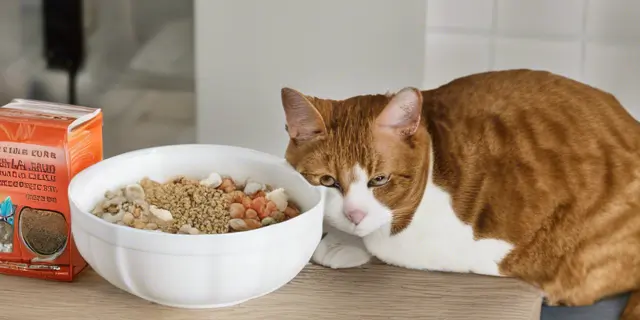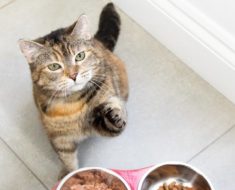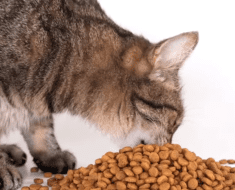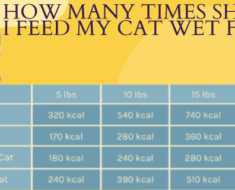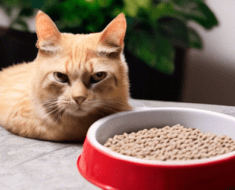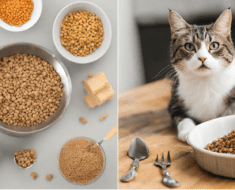To help cats with a sensitive stomach, provide a high-quality, easily digestible diet and avoid sudden changes in food. Try feeding smaller, more frequent meals
Having a cat with a sensitive stomach can be challenging, but with the right approach, you can help alleviate their discomfort and improve their overall well-being. By understanding the specific dietary needs of cats with sensitive stomachs and making appropriate adjustments, you can ensure that your feline companion stays healthy and happy.
We will explore effective strategies for managing a cat’s sensitive stomach, including diet recommendations, feeding schedules, and when to seek professional advice from a veterinarian. With the right care and attention, you can make a positive impact on your cat’s digestive health and quality of life.
Understanding Feline Sensitive Stomach
Cats with sensitive stomachs can show signs like vomiting, diarrhea, and lack of appetite.
Common causes include food allergies, dietary changes, and eating too quickly.
To help your cat, try feeding a sensitive stomach diet, slow down mealtime, and consult your vet.
Choosing The Right Diet
Cats with sensitive stomachs need high-quality ingredients to thrive. Specialized diets cater to their unique needs.
Feeding Techniques For Sensitive Stomachs
Helping cats with sensitive stomachs can be achieved through careful feeding techniques. Portion control and scheduled feeding can help minimize digestive issues. It’s important to slowly transition to a new diet to prevent stomach upset. Introduce new food gradually to allow the cat’s digestive system to adapt. Avoid sudden changes in diet, as this can trigger stomach sensitivity. By following these feeding techniques, you can help your cat maintain a healthy and balanced diet.
Supplements And Remedies
Having a cat with a sensitive stomach can be challenging, but there are many supplements and remedies available to help alleviate their discomfort. Probiotics and digestive enzymes are two popular options that can aid in improving digestion and reducing stomach sensitivity in cats. Probiotics are beneficial bacteria that promote healthy gut flora, while digestive enzymes help break down food more effectively. It is important to choose high-quality products that are specifically formulated for cats and are made from natural ingredients. Moreover, herbal remedies, such as slippery elm and marshmallow root, can soothe the stomach and reduce inflammation. These natural supplements can be given in conjunction with a balanced diet and veterinary guidance to ensure the best possible results for your cat’s sensitive stomach.
Consulting With A Veterinarian
Consulting with a Veterinarian: When your cat has a sensitive stomach, it is crucial to seek professional help from a veterinarian. With their expertise, they can provide diagnostic tests to determine the underlying cause of your cat’s sensitive stomach. These tests may include blood work, fecal analysis, and even imaging studies such as X-rays or ultrasounds. Once the veterinarian has gathered all the necessary information, they will provide you with professional advice based on their findings.
Customized Treatment Plans: Armed with a diagnosis and professional advice, the veterinarian will develop a customized treatment plan for your cat’s sensitive stomach. This plan may consist of dietary changes, such as switching to a sensitive stomach formula or introducing hypoallergenic foods. In some cases, medication may be prescribed to alleviate symptoms or manage any underlying conditions. It is essential to follow the veterinarian’s guidance strictly and monitor your cat’s progress closely.
In cases of a sensitive stomach, expert guidance from a veterinarian is crucial in finding the right solutions and improving your cat’s overall well-being.
Frequently Asked Questions On How to Help Cats With A Sensitive Stomach
What Can I Give My Cat To Soothe His Stomach?
You can give your cat bland food like boiled chicken or rice to soothe its stomach. Avoid giving your cat over-the-counter medications without veterinary approval. Offer small meals to prevent further stomach distress.
What Can I Feed My Cat With A Sensitive Stomach?
For a cat with a sensitive stomach, feed easily digestible foods like wet or hypoallergenic cat food. Avoid dairy products and fatty foods. Consider consulting a vet for specific dietary recommendations.
How do I solve My Cat’s Stomach Issues?
To help your cat with stomach issues, consult a vet for proper diagnosis and treatment. Ensure your cat has a balanced diet, provide plenty of fresh water, and monitor for any signs of discomfort or changes in behavior.
What Does It Mean If A Cat Has A Sensitive Stomach?
A cat with a sensitive stomach may vomit, have diarrhea, or show a lack of appetite. It could be due to food intolerance, stress, or an underlying health issue. To address this, consider a sensitive stomach diet and consult a veterinarian for proper diagnosis and treatment.
What Are The Symptoms Of A Sensitive Stomach In Cats?
Cats with sensitive stomachs may experience vomiting, diarrhea, frequent gas, or loss of appetite.
Conclusion
Understanding how to help cats with a sensitive stomach is crucial for their well-being. By implementing a proper diet, addressing potential allergies, and seeking advice from a veterinarian, cat owners can effectively manage their cat’s sensitive stomachs. Making small adjustments can lead to big improvements in your cat’s health and happiness.
